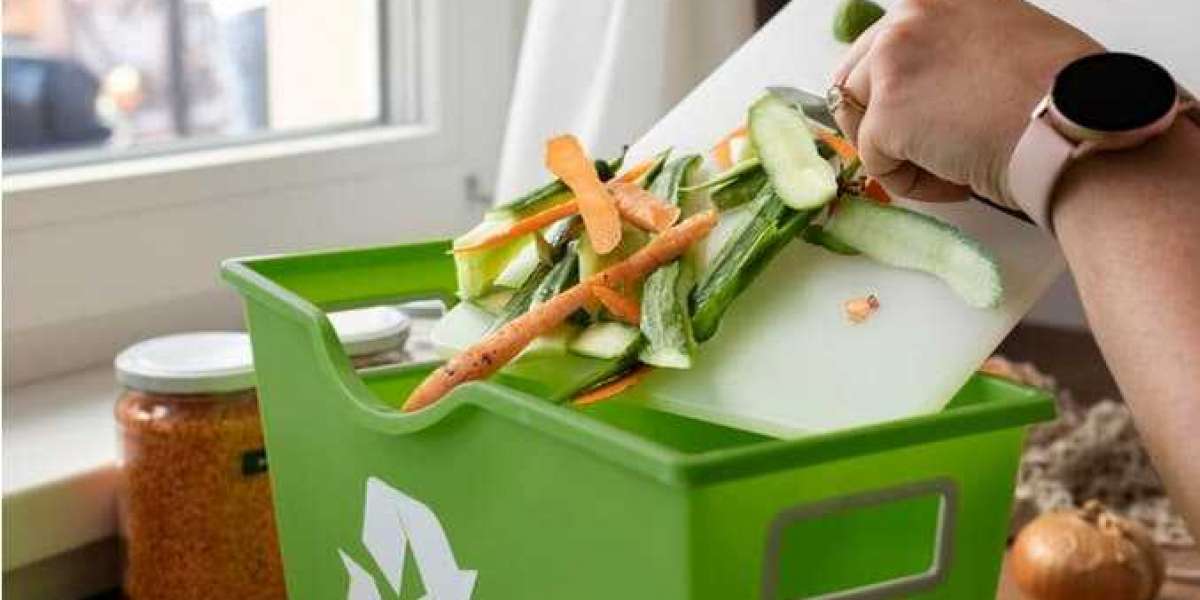Food waste has become a growing environmental and social issue across the United Kingdom. In Birmingham, a city known for its vibrant culture and diverse food scene, the challenge of wasted produce, meals, and expired goods continues to rise. Fortunately, food recycling in Birmingham has emerged as an effective solution that not only reduces the environmental burden but also promotes resource conservation and supports a more sustainable lifestyle.
The Growing Problem of Food Waste
Scale of Food Waste
Every year, millions of tonnes of edible and inedible food end up in bins across the UK. Birmingham contributes significantly to this figure due to its large population, thriving hospitality industry, and extensive retail sector. Households alone account for a considerable proportion of this waste, with much of it being food that could have been consumed with better planning and awareness.
Environmental Impact
Discarded food has serious environmental consequences. When food ends up in landfill, it decomposes and produces methane, a greenhouse gas far more potent than carbon dioxide. The carbon footprint of food waste also extends to the resources used in growing, transporting, and processing the food that is ultimately discarded.
Social Consequences
The wastage of food is not only an environmental issue but also a social one. While many families in Birmingham face food insecurity, vast amounts of edible produce go to waste each week. This contrast highlights the importance of food recycling and redistribution initiatives.
What is Food Recycling?
Food recycling refers to the process of collecting food waste and converting it into valuable resources such as renewable energy, animal feed, or compost. In Birmingham, food recycling schemes focus on diverting organic waste away from landfill and putting it to beneficial use.
Anaerobic Digestion
One of the most common methods of food recycling involves anaerobic digestion. This process breaks down food waste in the absence of oxygen to produce biogas, which can be used as a source of renewable energy, and digestate, which can be used as a natural fertiliser.
Composting
Food waste can also be recycled through composting. This method turns organic matter into nutrient-rich compost that can be used in agriculture, gardening, and landscaping, reducing the need for chemical fertilisers.
Redistribution Initiatives
In addition to recycling, surplus edible food can be redistributed to charities and food banks. These efforts help reduce waste while supporting local communities in need.
Food Recycling in Birmingham
Household Participation
Residents in Birmingham are encouraged to separate food waste from general rubbish. Local councils provide dedicated bins or caddies for food recycling, making it easier for households to dispose of waste responsibly. Public awareness campaigns also highlight the importance of reducing and recycling food waste.
Business Responsibility
Restaurants, cafes, supermarkets, and food manufacturers in Birmingham play a significant role in food recycling. Many businesses now collaborate with recycling services to ensure that their food waste is collected and processed sustainably. This not only reduces disposal costs but also strengthens their environmental credentials.
Community and Education
Community-led initiatives in Birmingham focus on raising awareness about food waste prevention and recycling. Workshops, school programs, and local events aim to educate people on portion control, meal planning, and the benefits of food recycling. These efforts foster a culture of sustainability across the city.
Benefits of Food Recycling Birmingham
Environmental Benefits
Recycling food waste helps Birmingham reduce its reliance on landfill, cutting greenhouse gas emissions and conserving natural resources. The creation of compost and renewable energy further supports the city’s transition to greener alternatives.
Economic Advantages
Food recycling can lower waste disposal costs for businesses and households. At the same time, producing renewable energy from food waste contributes to the local economy by generating sustainable power and creating employment opportunities.
Social Impact
Through redistribution programs, food that would otherwise be wasted can reach those experiencing food poverty. Food recycling in Birmingham therefore has a direct role in reducing inequality and supporting vulnerable communities.
How Residents Can Contribute
Reduce Waste at Home
The first step in supporting food recycling is reducing waste at the source. Residents can achieve this by planning meals, storing food correctly, and making use of leftovers. Simple changes in habits can significantly decrease the amount of waste generated.
Separate Food Waste Properly
Households should use the food recycling bins provided by local authorities. Ensuring that food waste is separated correctly increases the efficiency of recycling processes and ensures that less waste goes to landfill.
Support Local Initiatives
Residents can get involved in community projects focused on food waste reduction and recycling. Volunteering with local charities, attending educational events, or supporting surplus food distribution schemes all make a positive impact.
The Future of Food Recycling Birmingham
Technological Innovation
Advancements in recycling technology are expected to further enhance the efficiency of food recycling systems. Birmingham may see more investment in anaerobic digestion plants and composting facilities, which will allow greater volumes of waste to be processed sustainably.
Policy and Legislation
Government policies play a vital role in encouraging food recycling. Regulations requiring businesses to separate food waste and meet sustainability targets will likely drive higher participation levels in Birmingham.
A Cultural Shift
As awareness continues to grow, Birmingham is moving towards a culture where wasting food is no longer acceptable. Educational initiatives, combined with practical recycling solutions, are shaping the city into a model of sustainability for others to follow.
Conclusion
Food recycling in Birmingham is more than a waste management strategy. It is a crucial part of the city’s efforts to reduce its environmental footprint, conserve resources, and support local communities. By participating in recycling schemes, making responsible choices at home, and supporting community initiatives, residents and businesses can play an essential role in shaping a cleaner and more sustainable future for the city.







